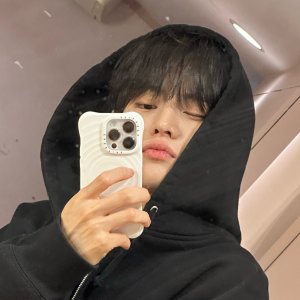Beyond the Reflection
When I first came across the ending scene of Memory in the Letter, where Kyo openly confessed to Aksorn’s father that they were in a relationship, I was immediately intrigued and knew I had to watch it. However, seeing that the series only had six episodes left me a bit disappointed, especially since most Thai BLs typically span 12-14 episodes. Yet, understanding that it wasn’t backed by a well-known company, I set aside my expectations and delved in, eager to see what it had to offer.
The series’ premise is quite unconventional, offering a blend of romance and intrigue that keeps you thinking. This type of storytelling stood out and made it one of the more enjoyable dramas I’ve watched this year. The plot carried enough surprises to keep me engaged, especially the twist that Songjam was actually Kyo all along. It was an unexpected revelation—I initially believed Kyo was a standalone protagonist in the Aksorn and Songjam narrative, but that twist added a clever layer of depth to the story.
One of the strongest aspects of the drama was how Kyo/Songjam allowed Aksorn to uncover the truth gradually. The way this part of the plot was handled kept the story flowing while maintaining an air of mystery. I appreciated that they didn’t immediately resolve the identity revelation; it gave the drama more room to breathe. I genuinely thought the moment when the mirror broke and Songjam disappeared would lead to a dramatic scene where he would reappear behind Aksorn once he realized what had happened, but the plot chose a more subtle route, which worked well.
However, not all aspects were flawless. For example, the scenes involving Peach’s stalking were unnecessary and felt out of place once she noticed the similarities between Aksorn in the novel and real-life Aksorn.
Reflecting on my initial disappointment with the limited episode count, I couldn’t help but wish the story had been given more time to unfold. The premise was rich with potential, yet certain intriguing questions were left unanswered. For instance, if Aksorn’s mother wrote the story involving Songjam and Aksorn, how was Aksorn initially able to see Songjam before he teleported to the present world? Why did Songjam arrive years before Aksorn encountered him, and why didn’t Songjam make it clear that Aksorn’s mother was the story’s author? These gaps could have been explored further to enhance the narrative’s complexity.
Despite these loose ends, the series achieved its primary goal: telling a story that was both coherent and captivating. It managed to tie everything together enough for viewers to understand the plot, even with the untied threads.
The leads were visually appealing, especially Parky, who played Songjam/Kyo. His looks had me gushing throughout the series, and it wasn’t until later that I realized how well he and Can’s visuals complemented each other.
One recurring issue, however, was the awkward execution of intimate scenes. It’s 2024, and the era of side lip kisses and stiff, hesitant interactions belongs to the 2015 days of Love By Chance and SOTUS. In a time when on-screen romances have become more genuine and Thailand has made significant strides in LGBTQ+ representation, such stilted moments felt out of place and a bit frustrating.
All things considered, the drama had strong points: a compelling plot, impressive cinematography, and solid acting. It wrapped up well, leaving me satisfied and excited for future projects from the cast.
Hopefully, I’ll even get the chance to attend their fan meet in the Philippines next year!
The series’ premise is quite unconventional, offering a blend of romance and intrigue that keeps you thinking. This type of storytelling stood out and made it one of the more enjoyable dramas I’ve watched this year. The plot carried enough surprises to keep me engaged, especially the twist that Songjam was actually Kyo all along. It was an unexpected revelation—I initially believed Kyo was a standalone protagonist in the Aksorn and Songjam narrative, but that twist added a clever layer of depth to the story.
One of the strongest aspects of the drama was how Kyo/Songjam allowed Aksorn to uncover the truth gradually. The way this part of the plot was handled kept the story flowing while maintaining an air of mystery. I appreciated that they didn’t immediately resolve the identity revelation; it gave the drama more room to breathe. I genuinely thought the moment when the mirror broke and Songjam disappeared would lead to a dramatic scene where he would reappear behind Aksorn once he realized what had happened, but the plot chose a more subtle route, which worked well.
However, not all aspects were flawless. For example, the scenes involving Peach’s stalking were unnecessary and felt out of place once she noticed the similarities between Aksorn in the novel and real-life Aksorn.
Reflecting on my initial disappointment with the limited episode count, I couldn’t help but wish the story had been given more time to unfold. The premise was rich with potential, yet certain intriguing questions were left unanswered. For instance, if Aksorn’s mother wrote the story involving Songjam and Aksorn, how was Aksorn initially able to see Songjam before he teleported to the present world? Why did Songjam arrive years before Aksorn encountered him, and why didn’t Songjam make it clear that Aksorn’s mother was the story’s author? These gaps could have been explored further to enhance the narrative’s complexity.
Despite these loose ends, the series achieved its primary goal: telling a story that was both coherent and captivating. It managed to tie everything together enough for viewers to understand the plot, even with the untied threads.
The leads were visually appealing, especially Parky, who played Songjam/Kyo. His looks had me gushing throughout the series, and it wasn’t until later that I realized how well he and Can’s visuals complemented each other.
One recurring issue, however, was the awkward execution of intimate scenes. It’s 2024, and the era of side lip kisses and stiff, hesitant interactions belongs to the 2015 days of Love By Chance and SOTUS. In a time when on-screen romances have become more genuine and Thailand has made significant strides in LGBTQ+ representation, such stilted moments felt out of place and a bit frustrating.
All things considered, the drama had strong points: a compelling plot, impressive cinematography, and solid acting. It wrapped up well, leaving me satisfied and excited for future projects from the cast.
Hopefully, I’ll even get the chance to attend their fan meet in the Philippines next year!
Esta resenha foi útil para você?






